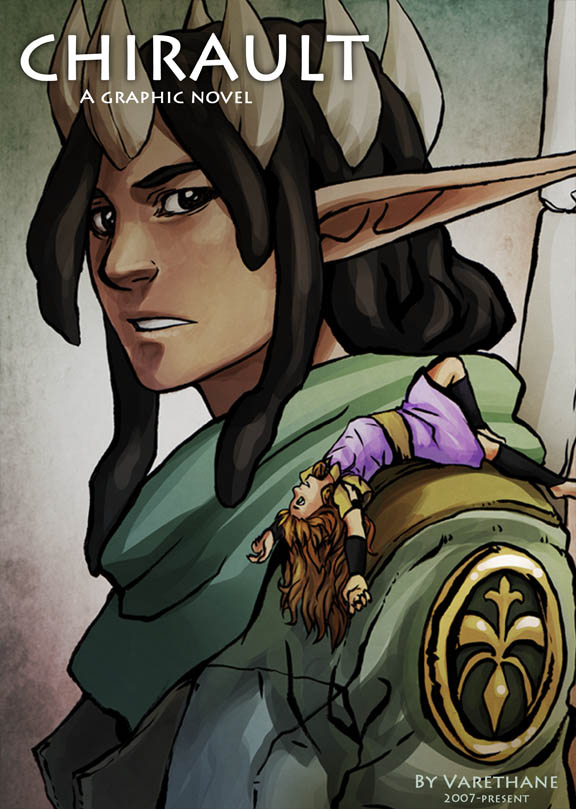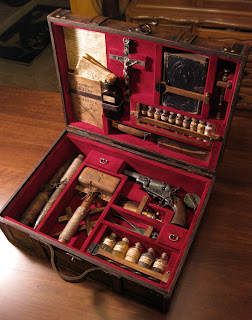I have one more moment to pull from the critique of my friend
Micosil's short story I blogged about
last week, a brief exchange that I thought was rather compelling. We were discussing the italicized word in this sentence:
"The mountain of a man held a
black double-bladed axe in his other hand, the great weight seeming not to trouble him in the least."
Here's the mini-conversation for you:
Wordsmith: I wouldn't say black in the first paragraph. It's uneccesary for the visual at that exact moment,
you mention it later, and it's usually good to cut out words where possible.
Micosil: Oh come on, that's one word!
Wordsmith: Yep.
Wordsmith: One word matters.
Micosil: Which is why I did change it.









